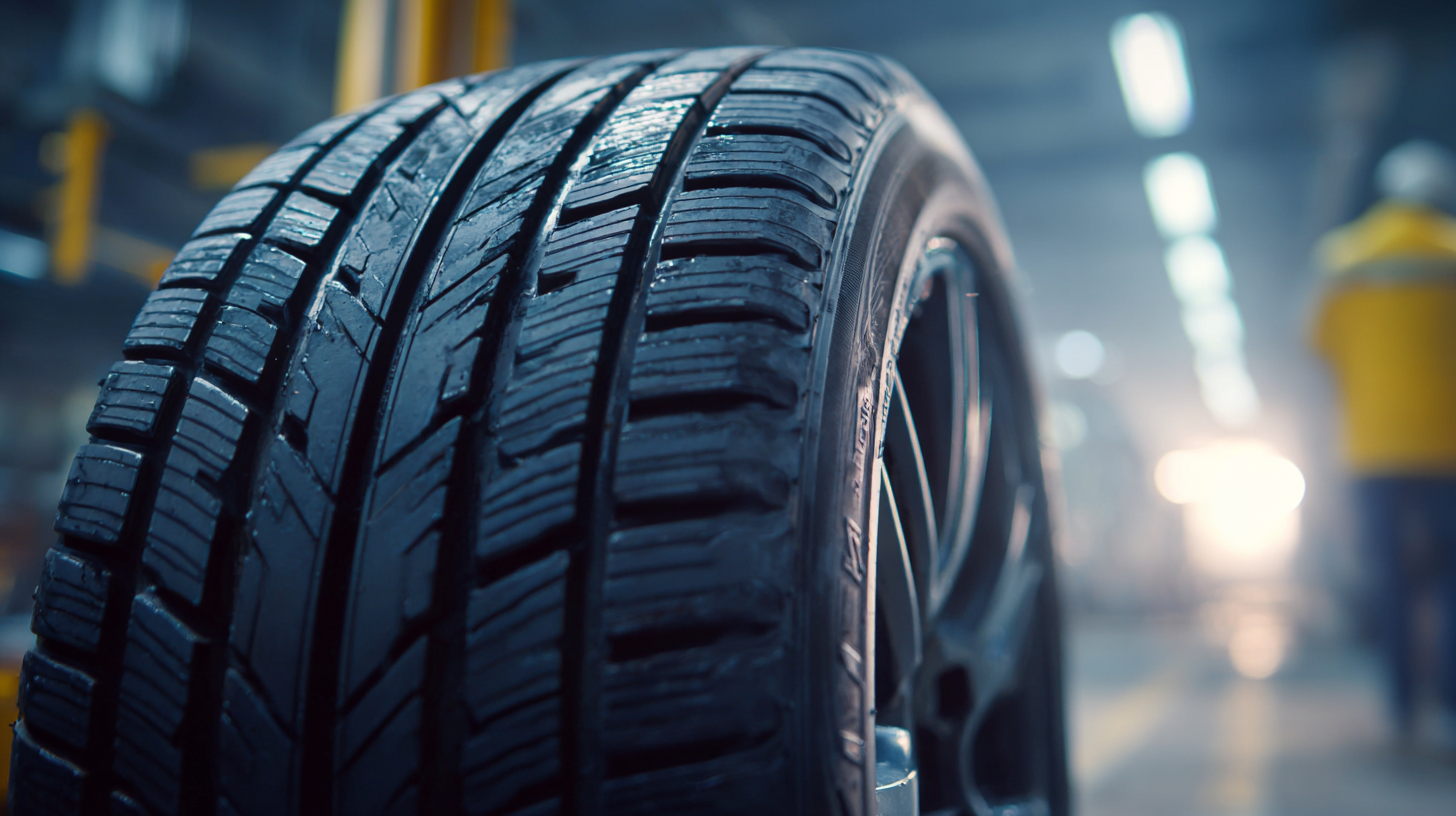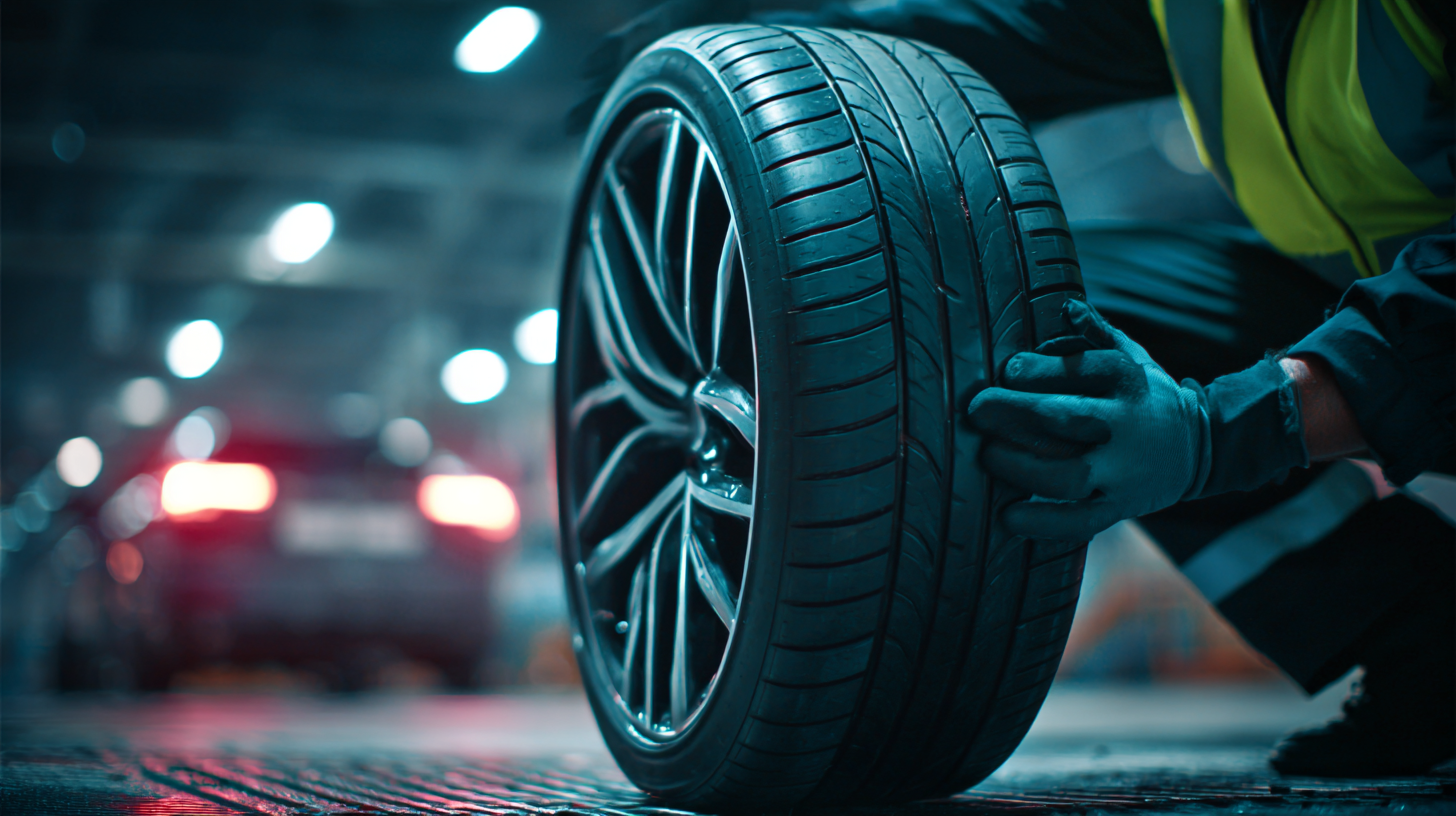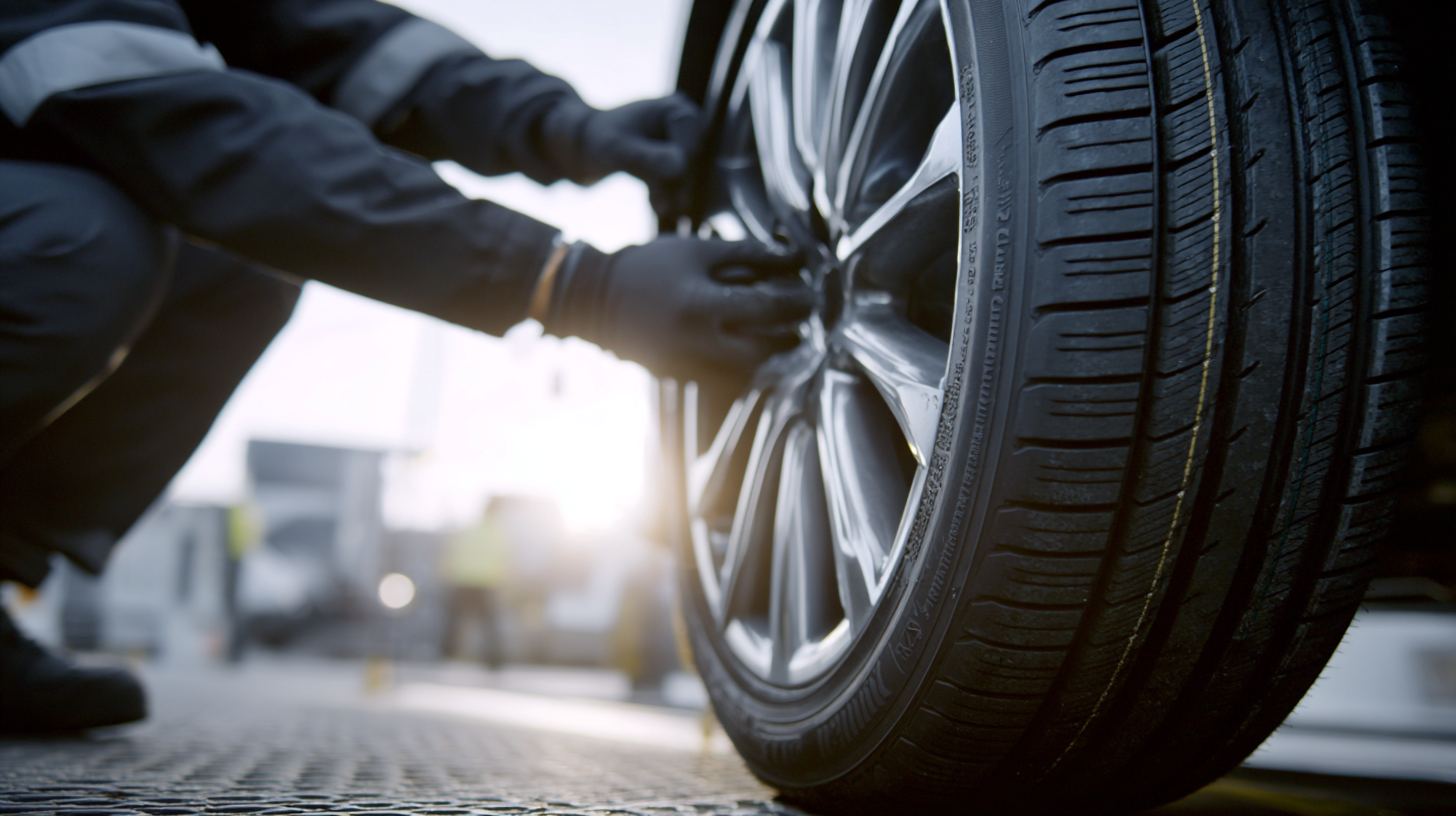Help is here
Understanding the Importance of Tire Service in Reducing Road Accidents and Enhancing Vehicle Safety
 Tire service plays a crucial role in ensuring vehicle safety and minimizing the risk of road accidents. According to the National Highway Traffic Safety Administration (NHTSA), improper tire maintenance contributes to approximately 11,000 crashes annually in the United States alone. Regular tire inspections, rotations, and alignments can significantly enhance tire performance and longevity, promoting safer driving conditions. Moreover, a report from the Tire Industry Association reveals that properly inflated tires can improve fuel efficiency by up to 3% while reducing the likelihood of blowouts, which can lead to severe accidents. As such, prioritizing tire service not only enhances vehicle safety but also contributes to overall road safety, urging both individual drivers and fleet operators to invest in diligent tire maintenance practices.
Tire service plays a crucial role in ensuring vehicle safety and minimizing the risk of road accidents. According to the National Highway Traffic Safety Administration (NHTSA), improper tire maintenance contributes to approximately 11,000 crashes annually in the United States alone. Regular tire inspections, rotations, and alignments can significantly enhance tire performance and longevity, promoting safer driving conditions. Moreover, a report from the Tire Industry Association reveals that properly inflated tires can improve fuel efficiency by up to 3% while reducing the likelihood of blowouts, which can lead to severe accidents. As such, prioritizing tire service not only enhances vehicle safety but also contributes to overall road safety, urging both individual drivers and fleet operators to invest in diligent tire maintenance practices.
The Critical Role of Regular Tire Maintenance in Accident Prevention
Regular tire maintenance plays a critical role in accident prevention and enhancing vehicle safety. Tires are the only contact point between your vehicle and the road, and their condition directly impacts handling, braking distance, and overall driving stability. Ensuring that your tires are properly inflated, aligned, and free of significant wear helps minimize the likelihood of blowouts and loss of traction, especially in adverse weather conditions.
Tips for Maintaining Your Tires:
- Check Tire Pressure Regularly: Maintaining the correct tire pressure is essential for safety. Underinflated tires can overheat and lead to blowouts, while overinflated tires can reduce traction and increase the risk of skidding. Use a tire pressure gauge to check the PSI monthly and adjust as necessary according to the manufacturer’s recommendations.
- Inspect Tread Depth: Adequate tread depth is vital for optimal grip, particularly in wet conditions. Use the penny test—insert a penny into the tread with Lincoln's head facing down. If you can see all of Lincoln’s head, it’s time for new tires.
- Rotate and Align Tires: Regular rotation and proper alignment can extend tire life and enhance performance. Typically, tires should be rotated every 5,000 to 7,500 miles. Additionally, regular alignment checks can help prevent uneven tire wear and ensure a smoother ride.

Statistical Correlation Between Tire Condition and Road Safety Incidents
Tire condition plays a crucial role in road safety, directly influencing the likelihood of traffic accidents. Poorly maintained tires can lead to diminished traction, increased stopping distances, and a greater risk of blowouts, particularly in adverse weather conditions such as snow and ice. Statistics reveal that a significant percentage of vehicle crashes are linked to tire-related issues, making regular tire service essential for preventing accidents and safeguarding drivers.
In regions like the Gaza Strip, where road traffic incidents are a pressing public health concern, the importance of tire maintenance becomes even more evident. Factors contributing to these accidents often include inadequate vehicle upkeep and environmental conditions. For instance, during winter months, the challenges of icy roads are compounded when vehicles are not equipped with properly serviced tires. This amplifies the risk not just for motorists but also for vulnerable road users, such as motorcyclists, who lack the protective structures found in passenger vehicles. Therefore, enhancing tire service protocols is vital for improving overall road safety and reducing the frequency of incidents on the roads.

Impact of Tire Pressure on Vehicle Handling and Stability
Tire pressure plays a crucial role in vehicle handling and stability, significantly impacting driving performance and safety. When tires are inflated to the correct pressure, they provide optimal traction, which enhances the vehicle's grip on the road. Low tire pressure can lead to poor handling, increased stopping distances, and a higher likelihood of tire blowouts. Conversely, over-inflated tires can compromise ride comfort and also reduce contact with the road, making it challenging to maintain control in adverse conditions.
To ensure your tires are at the right pressure, check them regularly, ideally once a month or before long trips. Make it a habit to inspect tire pressure when they are cold, as driving heats them up and can give inaccurate readings. Additionally, don’t neglect to review the vehicle manufacturer’s recommendations for tire pressure, which can usually be found in the owner’s manual or on a sticker inside the driver’s door.
Another vital tip is to inspect your tires for wear and damage regularly. Look for uneven tread wear, cracks, or bulges, which could indicate underlying problems. Keeping tires properly inflated and well-maintained not only contributes to safer driving but can also improve fuel efficiency, allowing you to save money in the long run.
The Importance of Professional Tire Inspections for Optimal Performance
Professional tire inspections play a crucial role in ensuring optimal vehicle performance and safety on the road. Regular checks can identify signs of wear, such as uneven tread or bulges, which can significantly increase the risk of tire failure. During a professional inspection, technicians also assess tire pressure, alignment, and balance—factors that directly influence a vehicle's handling and fuel efficiency. By addressing potential issues early on, drivers can avoid dangerous blowouts and improve overall driving stability.
Moreover, professional tire inspections not only enhance the safety of the vehicle but also extend the lifespan of the tires. Proper maintenance can help prevent premature wear, saving drivers money in the long run. Routine check-ups allow technicians to recommend suitable replacements or rotations, ensuring that tires perform at their best under various driving conditions. This proactive approach to tire care can contribute to a safer driving experience, reducing the likelihood of road accidents and promoting confidence behind the wheel.
Understanding the Economic Benefits of Investing in Tire Services for Safety
Investing in tire services not only enhances vehicle safety but also presents significant economic benefits for drivers and fleet operators. According to the National Highway Traffic Safety Administration (NHTSA), improper tire maintenance contributes to approximately 3,000 fatal crashes annually in the United States. By conducting regular tire inspections and maintenance, vehicle owners can significantly reduce the likelihood of blowouts and tread failures that often lead to accidents, thereby saving lives and reducing overall societal costs associated with traffic incidents.
Moreover, the economic impact of tire services extends beyond safety concerns. A report from the Rubber Manufacturers Association indicates that properly inflated tires can improve fuel efficiency by up to 3%, leading to savings at the pump. For the average driver, this can translate to hundreds of dollars each year. For commercial fleets, maintaining optimal tire health can enhance vehicle performance and longevity, ultimately reducing the frequency and cost of replacements. Therefore, prioritizing tire services is not only a smart investment in safety but also a strategy for economic efficiency and sustainability in transportation.


